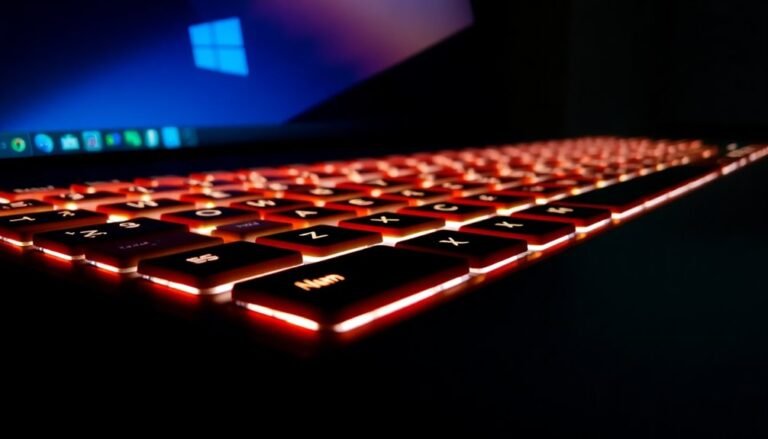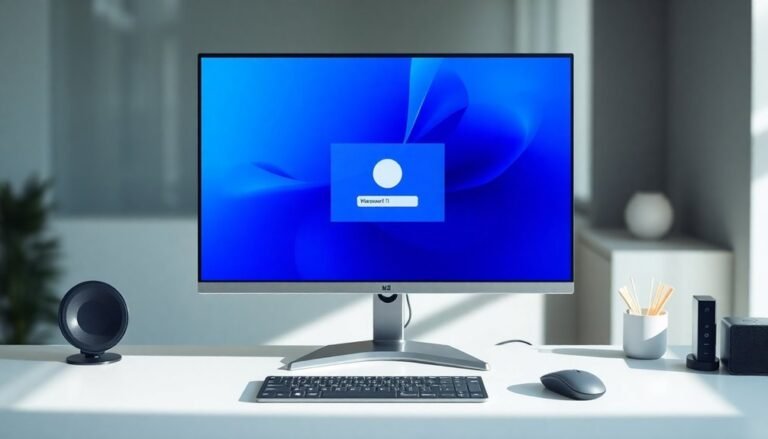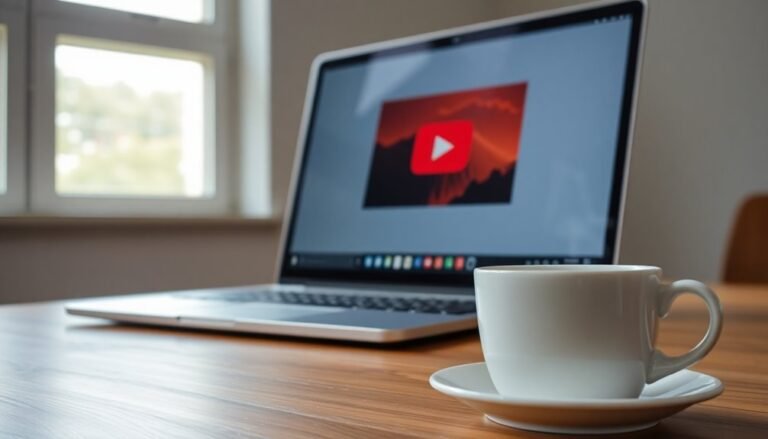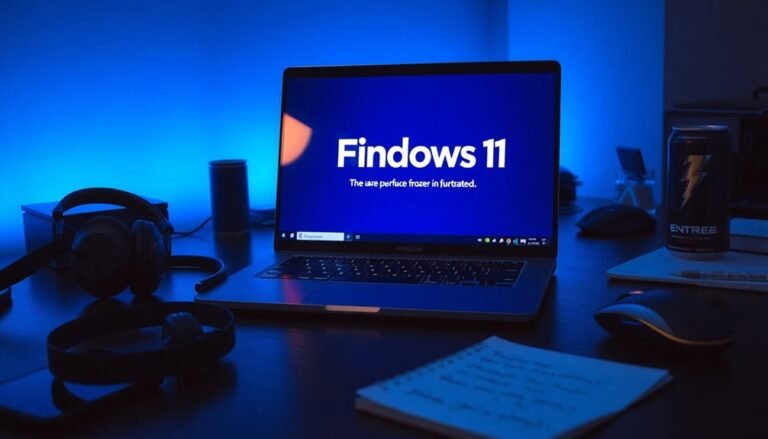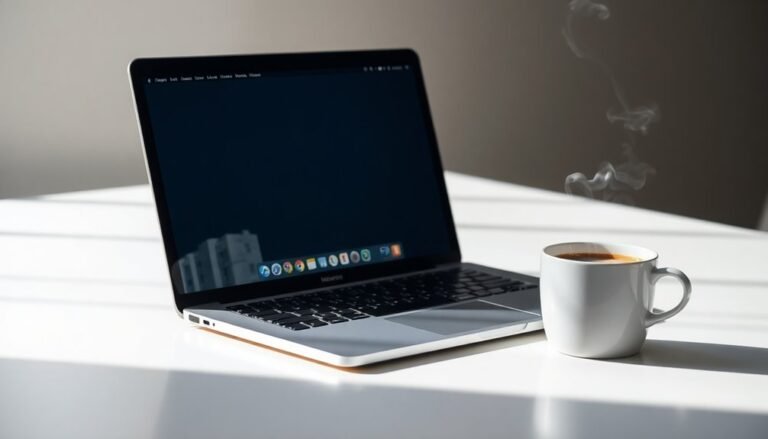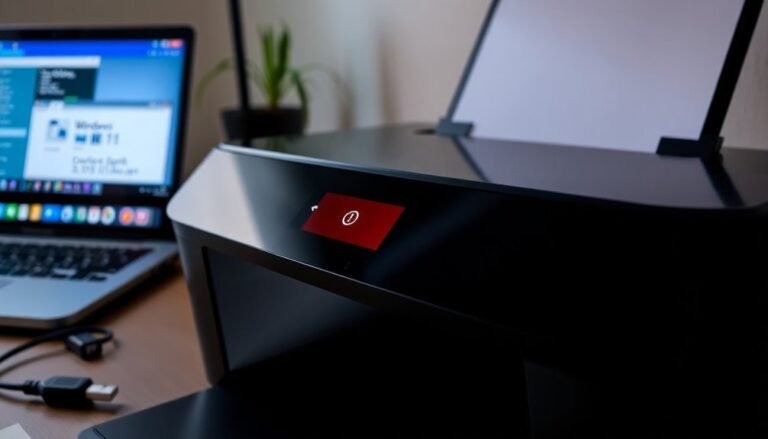Games Running Slow Windows 11: Optimize Gaming Performance
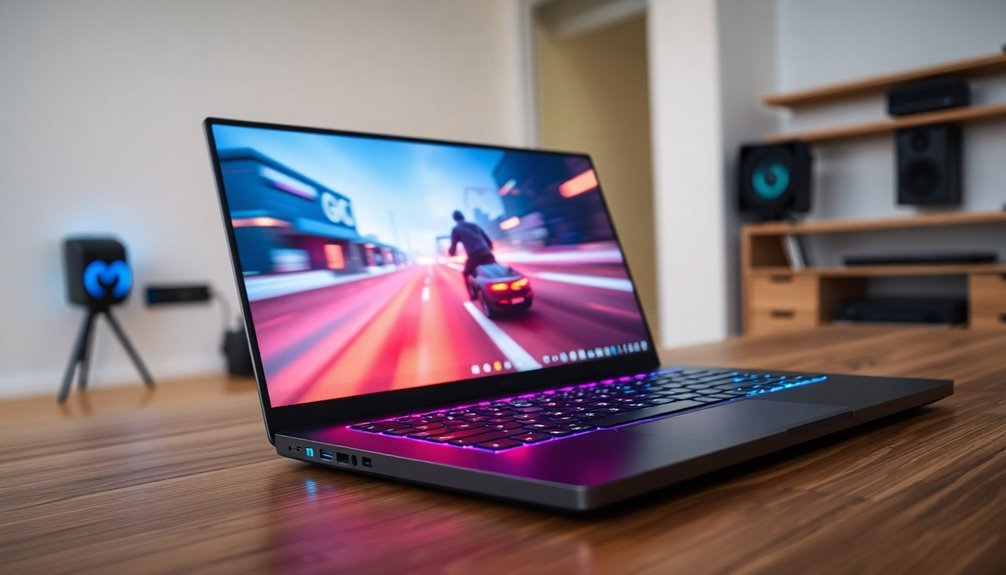
If games run slow on Windows 11, first enable Game Mode and switch to a High Performance power plan to prioritize resources. This helps allocate more power to your gaming experience.
Next, update your GPU drivers and enable Hardware-Accelerated GPU Scheduling. Lowering in-game graphics settings can also stabilize frame rates.
Disable extra visual effects to reduce system load. Optimize RAM by enabling XMP in the BIOS and clear unnecessary apps from startup.
For online games, tweak your DNS settings and reset your router. There are targeted methods available to help you squeeze even more FPS.
Game Mode and Power Settings for Maximum Performance
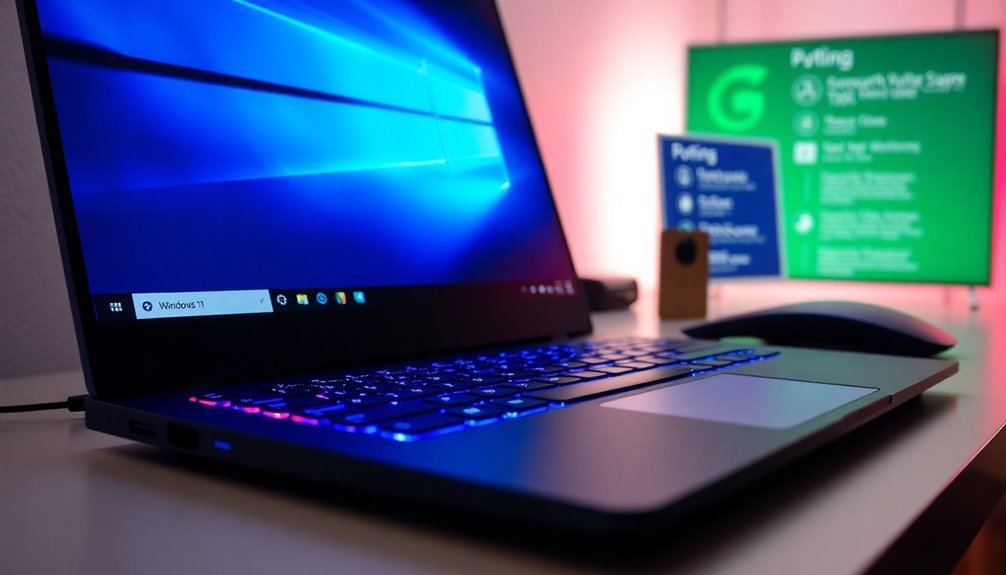
Maximize Your Windows 11 Performance with Game Mode and Power Settings
To get the best gaming performance on Windows 11, enabling Game Mode and optimizing your power settings are crucial. Game Mode in Windows 11 prioritizes CPU resources for your active game, ensuring more processing power and RAM are dedicated to gameplay instead of background applications. This feature temporarily disables unnecessary Windows services and background apps, reducing resource competition and improving game responsiveness.
Additionally, Game Mode works alongside hardware-accelerated GPU scheduling to minimize input lag and stabilize frame rates for smoother gaming experiences. In many cases, Game Mode intelligently manages background processes that may interfere with gaming by temporarily suspending or throttling non-essential applications, which helps maintain consistent system performance.
For optimal power management, switch your Windows 11 power plan to “High Performance” or “Ultimate Performance” mode. These settings prevent CPU and GPU throttling caused by power-saving features, ensuring maximum processing speeds during gameplay.
Disable CPU frequency scaling and sleep timers to avoid unwanted downclocking and performance drops. For laptop users, always use AC power to maintain peak output and check that peripherals and storage devices aren’t being throttled.
Access the Windows 11 “Gaming” settings tab to easily toggle Game Mode and switch power profiles, delivering seamless and data-driven performance improvements for your gaming rig.
Graphics and GPU Optimization Techniques
Maximize your gaming performance on Windows 11 by optimizing your graphics and GPU settings for the best results.
Start by enabling Hardware-Accelerated GPU Scheduling in Windows 11 Settings to offload scheduling tasks from your CPU to the GPU. This feature reduces latency and boosts frame rates, especially on modern GPUs with updated drivers.
Additionally, leverage DirectStorage technology if you have an NVMe SSD and a compatible GPU. DirectStorage significantly speeds up asset streaming and reduces load times in supported games, enhancing your overall gaming experience.
Keeping your GPU drivers up to date is crucial for optimal performance. Use official tools like NVIDIA GeForce Experience or AMD Radeon Software to download the latest driver updates, which include important performance improvements and game compatibility fixes.
Customize your GPU settings through the driver control panel by setting power management to maximum performance, optimizing texture filtering, and adjusting V-Sync according to your display’s specifications.
For advanced users, consider safely overclocking your GPU using manufacturer-approved utilities to achieve higher and stable clock speeds for superior gaming performance on Windows 11. Lowering in-game graphics settings such as resolution and texture quality can also have a significant impact on frame rates, making games run more smoothly on a wider range of hardware.
Essential System and Software Maintenance
Maximize your gaming performance on Windows 11 with essential system and software maintenance tips.
Begin by maintaining a comprehensive inventory of your hardware and software using tools like Microsoft Intune or detailed spreadsheets, and perform regular audits to keep everything up to date.
Enhance security and boost performance by reviewing user accounts in Windows 11 settings; adjust permissions to match your current needs, reducing security risks and unnecessary resource usage.
Keep your system secure and running smoothly by enabling automatic Windows Update for critical security patches.
Use Windows Defender or trusted third-party antivirus software to scan for vulnerabilities regularly.
Ensure compatibility and optimal speed by always installing the latest drivers, firmware, and BIOS updates from your hardware manufacturers.
Optimize your storage space with Disk Cleanup by removing temporary files and uninstalling unused software.
Monitor disk health using built-in Windows tools or reliable third-party applications.
For computers with HDDs, schedule regular defragmentation to improve data access speeds.
Activate Automatic Maintenance in Windows 11 to automate system diagnostics and event log reviews, helping you detect and resolve errors promptly.
Don’t overlook physical hardware maintenance: regularly clean your PC’s fans and vents to prevent dust buildup and monitor system temperatures with software tools to avoid thermal throttling during intense gaming sessions.
Following these expert Windows 11 maintenance strategies will ensure your gaming setup delivers peak performance and reliability.
Visual and UI Tweaks to Boost FPS
Boost Your FPS on Windows 11 with Visual and UI Tweaks
Even the most powerful gaming PCs can experience performance drops if Windows 11 visual and UI settings aren’t optimized. By reducing system UI overhead, you free up your CPU and GPU to focus more on gaming, resulting in higher frame rates and smoother gameplay.
Follow these essential Windows 11 performance tips to maximize your FPS:
1. Disable Visual Effects for Better Gaming Performance
Navigate to System > Advanced system settings > Performance Settings > Visual Effects. Choose “Adjust for best performance” or manually turn off animations, shadows, and transparency. This reduces unnecessary GPU and CPU usage, boosting your game’s frame rate.
2. Optimize Graphics Settings for Maximum FPS
Go to Settings > System > Display > Graphics settings and assign your games to use the dedicated GPU. Enable high-performance mode and turn on hardware-accelerated GPU scheduling. These settings lower latency and improve frame pacing, enhancing overall gaming performance.
3. Simplify Windows 11 UI and Themes
Switch to a basic Windows theme, enable dark mode, and use static desktop backgrounds. Disable dynamic wallpapers and live tiles to minimize background processes, reducing resource consumption and improving FPS.
Implementing these Windows 11 visual and UI optimizations can significantly improve your gaming experience by boosting frame rates and reducing stutters.
For more Windows 11 performance tips, stay tuned to our blog.
Network and Latency Improvements for Online Gaming
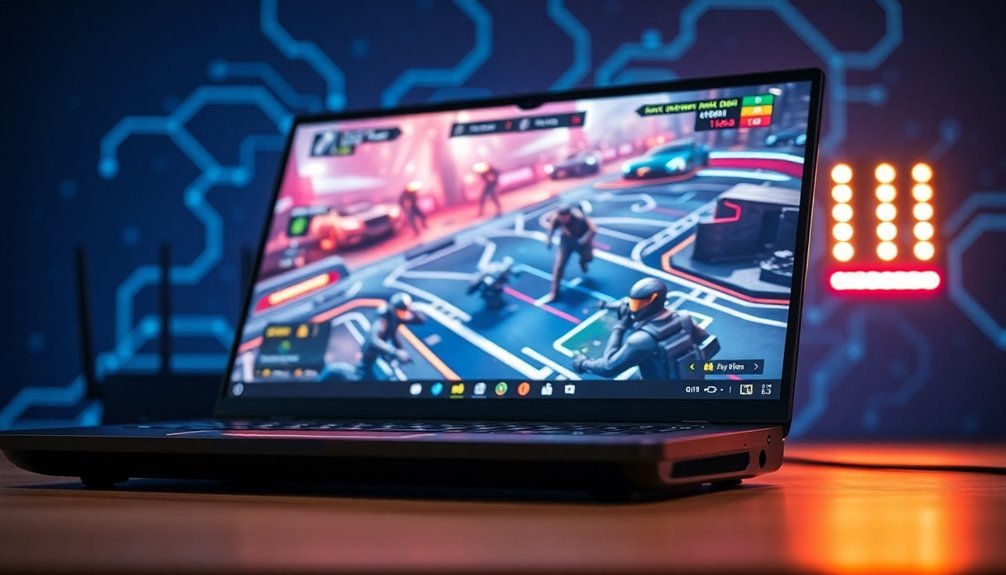
Improve your online gaming experience by reducing DNS lookup times and minimizing in-game lag. Benchmark and switch to the fastest DNS servers available for your location, such as Google DNS or Cloudflare, to enhance connection speed and reliability.
Easily configure these DNS settings manually through your network properties for optimal results. Additionally, decrease jitter and latency by applying TCP/IP stack optimizations using tools like SG TCP Optimizer, which allow you to adjust MTU size and disable unnecessary network features.
For consistent peak network performance, make sure to regularly reset your router. Follow these proven network and latency improvements to boost your gaming performance and enjoy smoother online gameplay.
Hardware Configuration and BIOS Tweaks
Optimize Your Gaming Performance on Windows 11 with Hardware Configuration and BIOS Tweaks
Windows 11 offers significant gaming enhancements, but achieving peak gaming performance depends heavily on your system’s hardware configuration and BIOS settings. To get the best gaming experience on Windows 11, ensure your processor and motherboard meet the minimum requirements: an Intel 8th Gen or AMD Ryzen 2000 series CPU, along with UEFI, Secure Boot, and TPM 2.0 enabled in BIOS.
Additionally, having at least 16 GB of RAM configured in dual-channel mode and enabling XMP profiles in BIOS will improve game loading times and overall smoothness.
For optimal graphics performance, use a graphics card that supports DirectX 12 and WDDM 2.0 drivers. Make sure to set your dedicated GPU as the primary display adapter in BIOS to maximize gaming stability and frame rates.
Key BIOS and hardware settings to enhance gaming on Windows 11 include:
- Enable XMP/DOCP for RAM – Increase memory speed for faster and more responsive gameplay.
- Update BIOS Firmware Regularly – Ensure compatibility and fix performance-related issues.
- Configure PCIe Generation and GPU Priority – Boost GPU throughput and maintain stable gaming performance.
Frequently Asked Questions
Can Antivirus Software Slow Down Games on Windows 11?
Yes, antivirus software can slow down games on Windows 11 by consuming CPU and memory for real-time protection. You can minimize impact by using gaming mode, scheduling scans, or choosing lightweight antivirus solutions optimized for low resource usage.
Do Background Browser Tabs Affect Gaming Performance?
With 30 browser tabs open, you’ll barely notice a drop in gaming speed on modern systems, but active tabs—like video streaming—can spike CPU/RAM use. Suspend unused tabs and enable browser efficiency features to minimize impact.
How Does Dual-Booting Impact Game Speed on Windows 11?
Dual-booting doesn’t slow down game speed on Windows 11 since only one OS runs at a time. However, if you allocate too little disk space to Windows, low storage can hinder game performance and update installations.
Are Certain RGB Lighting Apps Reducing My FPS?
Yes, some RGB lighting apps can slightly reduce your FPS by using CPU and RAM resources, especially if you run multiple programs. You can reclaim performance by disabling unnecessary RGB software, updating drivers, and consolidating to a single, efficient app.
Will Using Game Mods Make My Games Slower?
Yes, using game mods can slow your games, especially if they add complex assets or high-resolution textures. You’ll see more lag with multiple or poorly optimized mods. Limit active mods and keep your hardware, drivers, and mods updated.
Conclusion
You’ve tuned your system like a race car, every tweak a fine-tuned gear in the gaming machine. With Game Mode engaged, drivers updated, and visual clutter trimmed, your rig’s ready to sprint—not stumble. Keep your network sharp and BIOS dialed in, and Windows 11 stops being a hurdle, becoming your launchpad. By following these data-driven techniques, you turn slowdowns into smooth frames and transform lag into lightning-fast gameplay. Victory’s in your hands—now go claim it.
